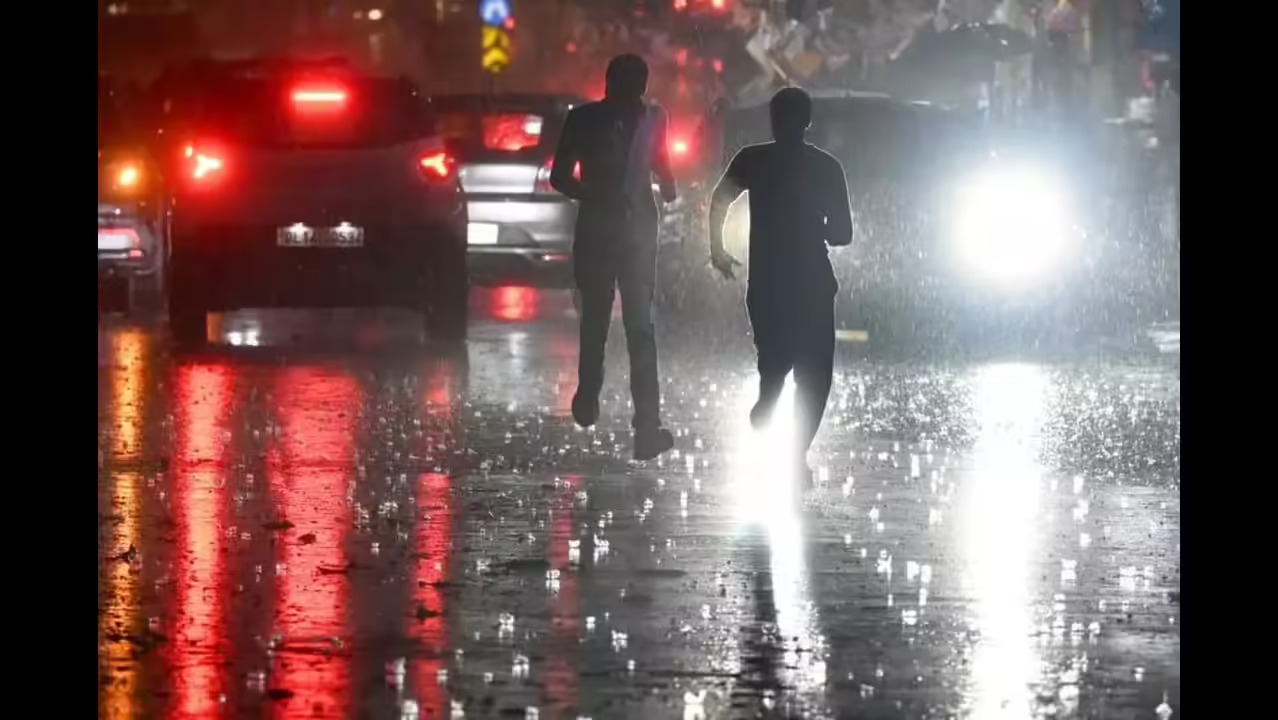Chennai is expected to witness light to moderate rain on July 21, 2025, along with a noticeable dip in daytime temperatures. Forecasts indicate a significant atmospheric shift as the city transitions into a wetter seasonal phase, bringing both relief and logistical challenges to residents.
The daily temperature is projected to hover between 25.2°C and 28.6°C, with a high 89% chance of intermittent showers. Wind speeds are expected to reach 27.4 km/h, and humidity levels will stay around 74%, making the day feel both cooler and slightly humid. Meteorologists say the rainfall pattern is indicative of a broader transition in the region’s climate system, shifting towards a monsoon-influenced cycle typical of mid-July. The rainy conditions, although welcome amid rising urban heat concerns, could disrupt everyday commuting and outdoor activity. Weather officials have advised residents to carry umbrellas and wear appropriate rain gear to manage unpredictable showers throughout the day. The heaviest downpours are expected in the late afternoon, coinciding with peak travel hours, raising potential concerns for traffic snarls and waterlogging in low-lying areas.
Urban planning experts have long pointed to Chennai’s vulnerabilities during sudden weather changes, particularly in terms of stormwater drainage and urban heat resilience. While the cooler temperatures offer respite, the city’s infrastructure is often tested during these brief but intense wet spells. The rest of the week is expected to bring a mix of conditions. July 22 may provide a temporary break, with temperatures reaching a warmer 31.9°C under partly cloudy skies. However, brief spells of light showers are predicted on July 23 and July 24, keeping the city in a mild, wet cycle. July 25 and 26 may usher in drier and warmer conditions, pushing the mercury up to 32.9°C before the weekend begins. Experts have also noted that July 24 aligns with the new moon, which could contribute to enhanced rainfall activity mid-week due to lunar gravitational effects influencing oceanic and atmospheric pressure systems. Although no extreme weather events are predicted at this stage, civic authorities are closely monitoring conditions to respond to any flash flooding.
While the cooler weather can help reduce Chennai’s carbon footprint in terms of energy consumption for cooling, it simultaneously underscores the need for sustainable drainage planning and inclusive weather-resilient urban design. As cities across India gear up for monsoon transitions, Chennai’s ability to adapt effectively may become a blueprint for urban climate response across other metros.
Also Read : Chennai Corporation Rolls Out Free Parking Across Chennai On July 21


